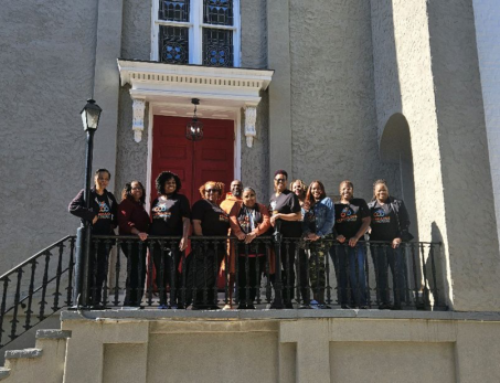During a recent workshop, I asked attendees – both Nonprofit Heads and Development Officers – to anonymously write down what they wished the other understood about their role. It was an absolutely fascinating exercise and revealed very clear similarities between the two audiences.
Generally, the Development Officers’ comments followed one of two themes.
- Wishing their ED/CEO understood how vital their personal involvement was in the fundraising process;
- The time and/or resources needed for them to truly be successful at their job.
“I wish they understood that their role goes beyond just being there for the ask. I can’t get very far if I don’t have more of your time.”
“I wish they understood that we’re no longer a mom and pop and the resources needed for a successful development department.”
“It would be great if he understood the importance of asking together.”
“I wish she understood how much time Development actually spends doing this work!”
On the other side, as I read through the comments of the Nonprofit Heads, my heart sank a bit. What they most wished their Development Officers understood could be summed up by this one leader’s comment:
“I wish my Director of Development knew that business growth and fundraising are very new to me. I really am trying and am relying heavily on them to help me in this area. I need some grace.”
Like me, you’re probably not shocked by these comments. Nonprofits are notoriously understaffed and under-resourced. And while we’ve noticed a shift in recent years, Nonprofit Chief Executives are still more likely to have a programmatic background than fundraising. Case in point: Have you ever heard of an Independent Head of School who wasn’t first a teacher? Or the leader of an arts organization that wasn’t an artist to some degree? That well-trained teacher, accomplished artist, etc. all of a sudden finds themselves tasked with running a business, dealing with a board and fundraising. They’re playing catch-up for years.
While we may not have been shocked by the responses, seeing these thoughts and desires written out reminds us of a few things:
- We’re all still learning. Let’s have some grace with ourselves and each other.
- Communication is key. It’s not always easy, but it’s up to us to communicate what we need to be successful. Leaders – Make space for your Development Officers to feel comfortable voicing what they need from you. Development Officers – Be honest about what you need to be successful. Don’t assume they know.
- Carve out some time to really explore your individual roles, your collective responsibilities to fundraising and how you relate to each other. There are tons of resources that can assist with this.
If I might be so bold, allow me to offer two resources to help you continue this conversation amongst your own team.
- First, I would highly recommend reading our book, “Fundraising for All” as a team, which, among other things, lays out each party’s role in the fundraising process (including the board’s).
- Secondly, Our Fundraising Search can facilitate a similar training that led to this article entitled “The Successful Fundraising Relationship Between Nonprofit Heads & Development Officers”. Reach out and let’s chat.






Leave A Comment
You must be logged in to post a comment.